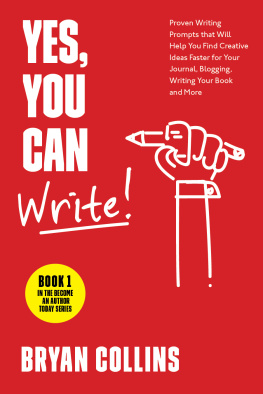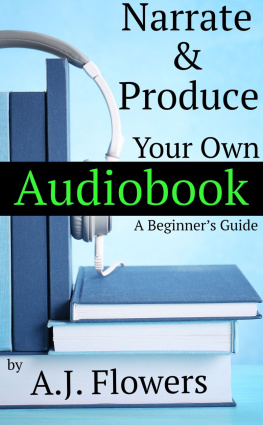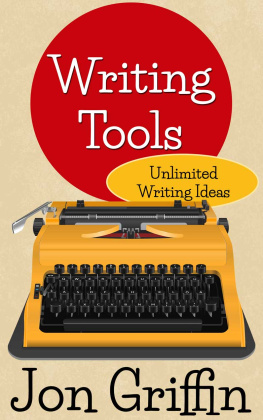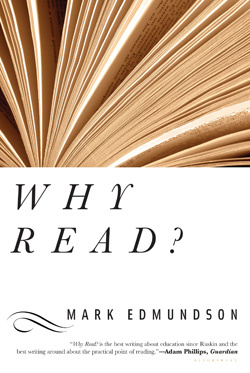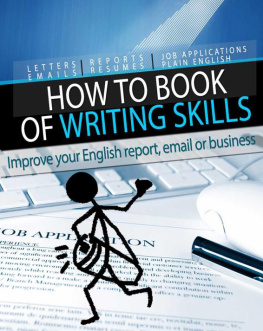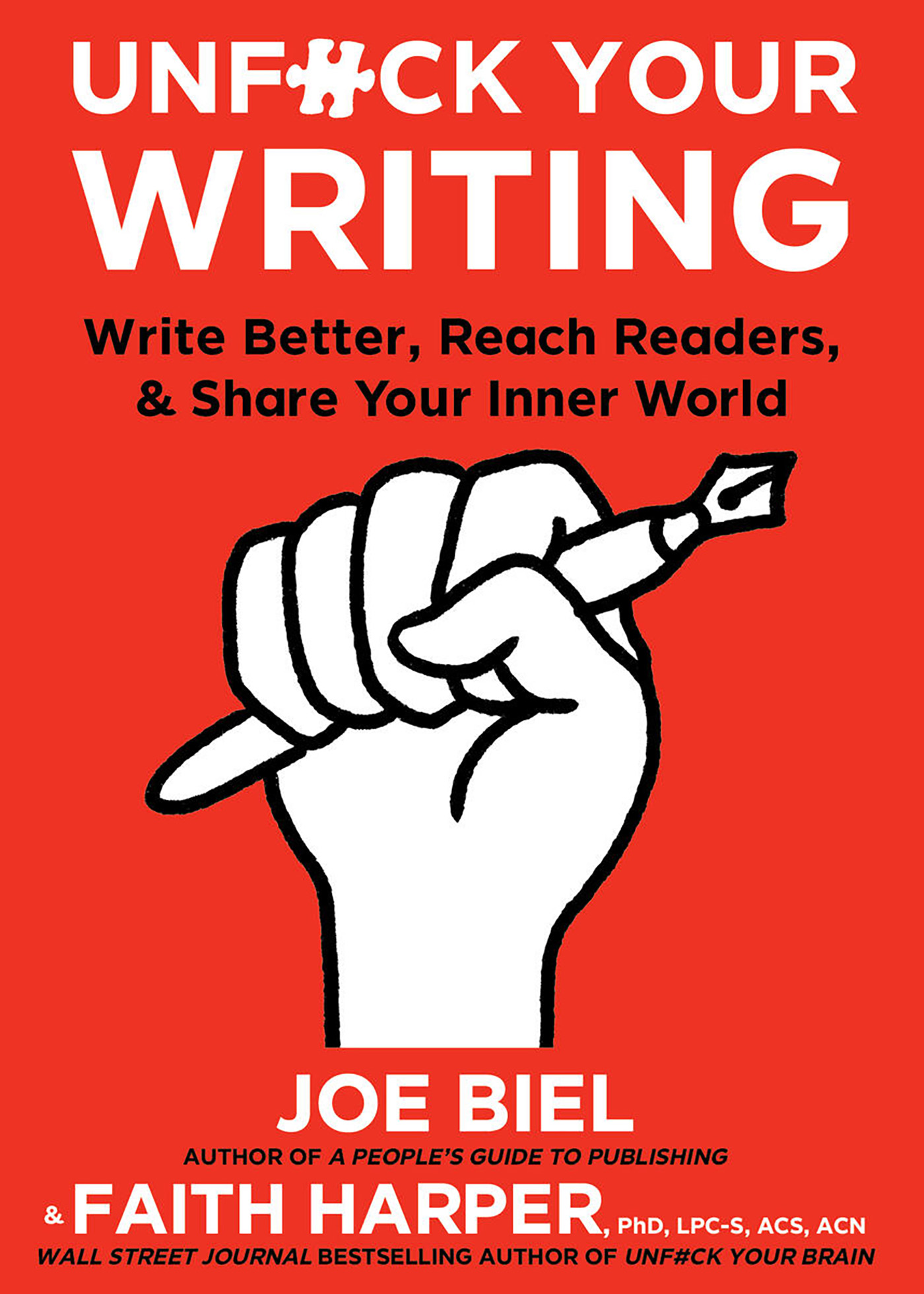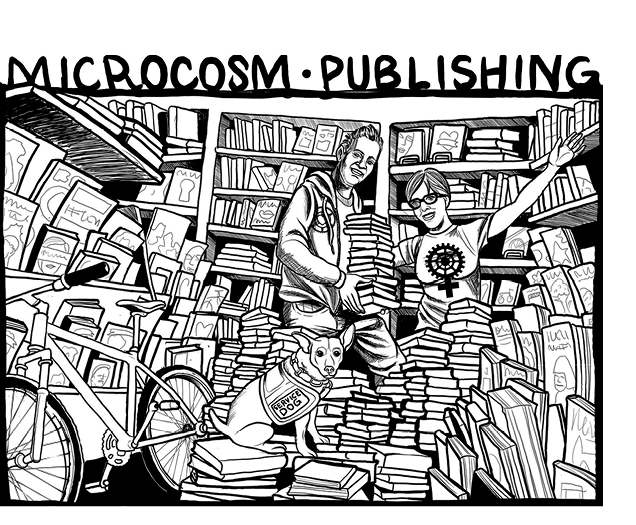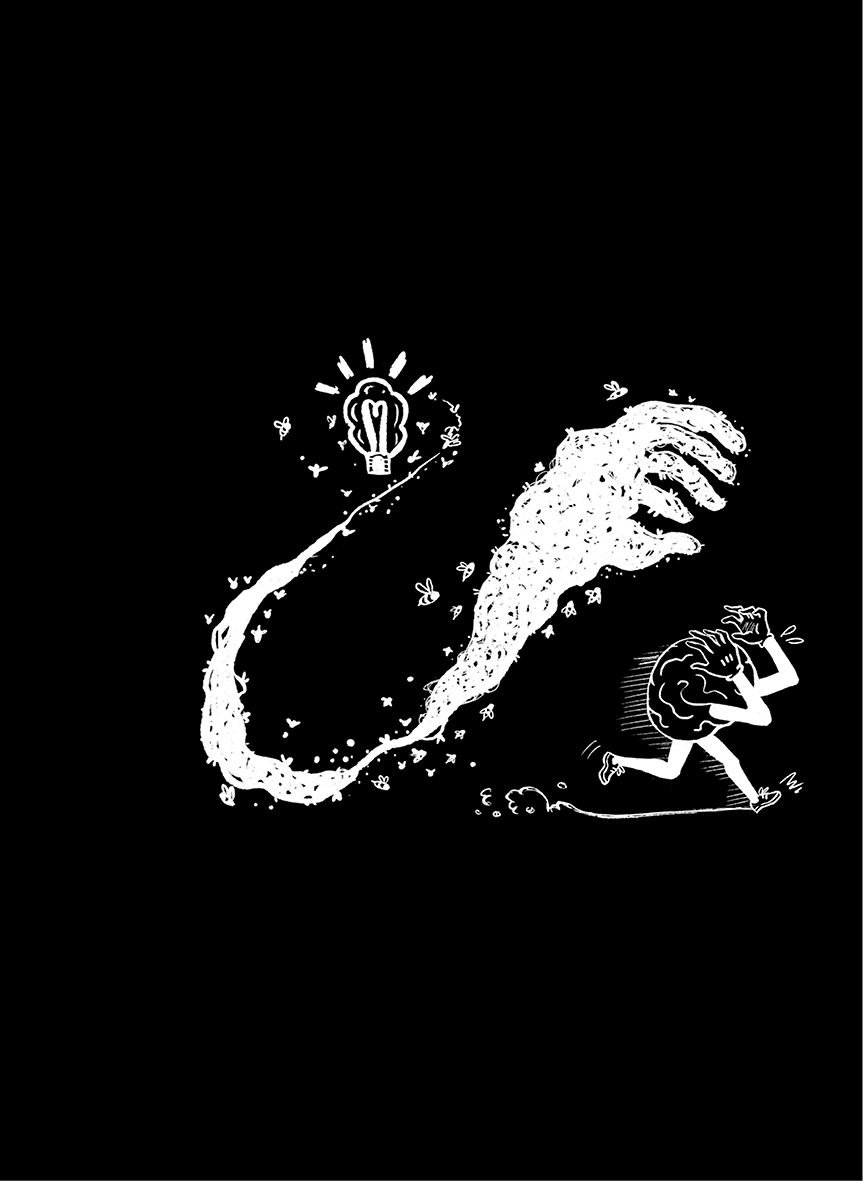Unfuck YOur writing
Write Better, Reach Readers, and Share Your Inner World
2021 Joe Biel and Faith G Harper, PhD, LPC-S, ACS, ACN
This edition Microcosm Publishing 2021
First edition - 3,000 copies - July 13, 2021
ISBN 9781648410147
This is Microcosm #534
Edited by Lydia Rogue and Elly Blue
For a catalog, write or visit:
Microcosm Publishing
2752 N Williams Ave.
Portland, OR 97227
https://microcosm.pub/writing
Did you know that you can buy our books directly from us at sliding scale rates? Support a small, independent publisher and pay less than Amazons price at www.Microcosm.Pub
Microcosm Publishing is Portlands most diversified publishing house and distributor with a focus on the colorful, authentic, and empowering. Our books and zines have put your power in your hands since 1996, equipping readers to make positive changes in their lives and in the world around them. Microcosm emphasizes skill-building, showing hidden histories, and fostering creativity through challenging conventional publishing wisdom with books and bookettes about DIY skills, food, bicycling, gender, self-care, and social justice. What was once a distro and record label was started by Joe Biel in his bedroom and has become among the oldest independent publishing houses in Portland, OR. We are a politically moderate, centrist publisher in a world that has inched to the right for the past 80 years.
Global labor conditions are bad, and our roots in industrial Cleveland in the 70s and 80s made us appreciate the need to treat workers right. Therefore, our books are MADE IN THE USA.
Contents
Introduction
Chapter 1: what is writing?
Chapter 2: how does our writing get fucked?
Chapter 3: this is your brain on writing
Chapter 4: why do you write?
Chapter 5: the writing commandments
Chapter 6: who are you writing for?
Chapter 7: how to decide what to write
Centering your ideas in your brain
the blank page problem
sharing expert opinions
Chapter 8: now write!
narrative work
non-narrative work
Chapter 9: the editorial process
how to think like an editor
editorial checklists
Chapter 10: how to get published
why write for print
career growth
conclusion
Further reading
About the authors
Introduction
S o you want to write? The first thing we are going to do is try to talk you out of it. Its a terrible and thankless way of spending your time on this orb. Dont do it! If you are flipping through this book at a store trying to decide if you should buy it? Totally dont. Put it down and go next door for a cupcake instead.
And if you just brushed all of that off with determination that you really, actually have to write? Then, fuck yeah, youre part of the team. Were all a little nuts hereyoull fit right in. And now were gonna do our level best to help you write your ass off.
In 2020, your trusty authors rushed out an early zine edition of this book for the Association of Writers & Writing Programs (AWP) Conference in San Antonio. We wanted to create a nuts-and-bolts guide that walked writers through the fundamentals of writing without all of the philosophical shit or hollow platitudes.
As an author who has sold hundreds of thousands of books (chief among them, Unfuck Your Brain) , Faith is frequently approached by novice authors for advice. Faith learned writing in academia and then subsequently had to unlearn it when writing for a general audience, maintaining footing in both worlds. Joe has been a publisher for over twenty-five years and so giving this type of advice is part of daily life, personally and professionally. Joe learned to write without a college, or even high school, education, which sorta flies in the face of most writing programs and even common logic. But again, writing isnt rocket science. Reading Writing Down the Bones in the nineties, Joe was left to believe that writing was far too difficult and technical a craft to pursue; it was best left to others. But that didnt stop Joe from having thoughts and ideas and analyses to convey to an audience. Over decades and tens of thousands of hours, Joe learned that constructing sentences in sequence in a manner that is both entertaining and informative isnt as difficult as other writing books would have you believe. As a matter of fact, contrary to popular belief, most writing advice is rather fundamental. There are networks and relationships, and there are definitely shortcuts, but most writing advice isnt rocket science. So weve distilled it all here.
Printing one hundred copies of the original zine for AWP, we figured it would be a rough and dirty early version of this book that wed immediately overhaul for a reprint, based on the feedback that we received. Because, you see, when you publish anything readers readily tell you what they expected would be different, what could be better, and what they want from you next. So producing something, even if its not great, is a vital first step. Joe learned this lesson of imperfectionism from punk rock in the nineties where shitty recordings are commonplace, and most things could be done better with a second take. But the real commodity in those rough performances is the passion, not technical perfection. And the best writing balances both of those commodities.
So you might imagine our disappointment when one of our first customers at AWP walked away with a copy and then an hour later declared that it was perfect and bought twenty more copies, one for each of her editorial staff. And while that might sound too good to be true, its probably a good time to mention that each of us had written over a dozen other books before we embarked upon this project. Joe went as far as researching and reading every book about writing before beginning work on the zine. Faith produced quite a list of writing books she finds useful as well, all of which you can see in the appendix. We both produce prolific text at rates that prompt questions about whether or not we sleep. There was a period in 2019 in which Joe wrote a new fifteen-thousand-word work every weekend, and Faith somehow writes an entire book every month or two, with the help of her editor. This is all to say that we didnt embark upon this project lightly. Or quickly. We wanted to make something useful because we had struggled to find books like this that got to the point without a bunch of filler and fluff and meditations on why writing is important. Anyone reading a book about writing already knows that and feels that way.
Still, we put aside the accolades of the original zine rather than basking in the idea that it was pure perfection. We expanded parts that could use more exposition and gave the entire text a solid revision. We wanted to impart the lessons that we learned the hard and long way, things other writing books dont get into, like how to disregard the things that seem important but really arent and when to stick to your guns versus when to listen to your editor. In short, we want you to have an easier time expressing yourself than we did.
Its our goal that when you finish reading this book, youll be able to communicate using the written word both simply and clearly and in the language that best suits your environment and application. We dont need to make writing sound faster or easier than it is. We want you to have a realistic idea of whats involved and how to succeed at it, on your own terms. Our own writing (and in Joes case, publishing) is mainly nonfiction books and zines, and so thats what a lot of our advice is geared towards. But if your passion is writing novels or a newsletter or keeping a travel diary, this book can help you, too. The key principles of clear simplicity, knowing your audience, and compressing out clutter still apply. However, the language we use may not always prioritize fiction like other writing books do. Along the way, weve brought in outside help from other writers with other perspectives.


